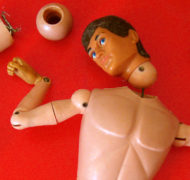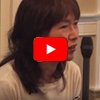Docs in Chaos: Honesty and Inspiration From the ER
Blog / Produced by The High Calling
"There are days when I sigh as I leave for work," confesses Dr. Puller, "and the only reason I go is because my family needs me to. But I have plenty of my own faults, which gives me a pretty decent tolerance even for the tough cases.” In this article, two ER docs bring Order Out of Chaos.
Through childhood, my mother would exclaim whenever I came home from playing, “Thank goodness you’re okay.” She’d heard an ambulance again and thought it was for me. She wasn’t a worrier, just accustomed to a slew of emergency room visits for a child who liked to take risks.
Most of those visits could have been avoided.
E.R. doctors Jonathan Miller and Justin Puller serve folks like me. They deal with other people's poor decisions and personal chaos every single day, most of which is avoidable.
“I’d say, maybe two-thirds are there due to their own choices. Sometimes very obvious ones—think six beers, no helmet, and 60 mph on a motorcycle that finds the ditch. Sometimes less obvious, like 40 years of McDonald's for lunch and no aerobic exercise. We even have patients who come in with a cold from not washing their hands where they knew the cold was going around.”
Jonathan’s list goes back further than 40 years, though. His colleague and former college roommate, Justin, tells this story about a middle-aged alcoholic woman:
“She was angry, hated us, and assumed that my medical staff and I hated her as well. She felt the world was against her. She seemed to have no one, and as best as I could tell had brought a good bit of that isolation upon herself. But I also wondered about her background. To what degree had the effects of the fall and the sins of others led her here, shaping her into the woman she is today? The book of Numbers says that children down to the third and fourth generations will suffer for the sins of their parents” (14:18-19).
And then he asked, “What could have been different in someone else's life that would have changed hers?”
I appreciate Justin’s compassion. It is so much easier to care, as mentioned in our interview, for the five-year old with a rare cancer, or the 35-year old with liver failure from a genetic disorder. But the rest? What do you do when your daily work demands a real-deal, Jesus-like response—actions and attitudes that you can’t, or don’t even want to display when your Neighbor “doesn’t deserve it”?
I asked them about this, about what comes to mind when they read stories of Jesus and those crowds lining up for care. Interestingly, Justin focused on technique:
“Jesus’ cures last an eternity; mine last minutes to months. He drove out demons; I give medicine to temporarily stop a seizure. Even in those cases when I hear, ‘Wow, you saved his life!’ I realize what a broken and short-term world we live in. I have never saved a life—only prolonged it.”
Jonathan took a more confessional approach:
“A busy Monday night. That’s what comes to mind. There are times when it seems that the train of wounded, anxious, and ill never ends. I frequently feel as if I’m being sucked dry by people with unrealistic expectations of modern day medicine and the ER, and they become parts to move along the assembly line as expediently as possible.”
I’m grateful for this honesty. One job during my young professional years required telemarketing hearing aid services to retirees. I believed that good hearing would benefit them—something like Justin giving medicine to improve quality of life—but most of them hated me for calling. I just wanted to move through the phone list as expediently as possible. Having witnessed firsthand what these men do every day (I once shadowed Justin for a full shift at a Level I Trauma Center), I realize that my telemarketing woes don’t compare. Still, I’m perplexed by a question: Since none of us are Jesus, what keeps us going back?
“My dad was a land manager for a timber company, watching over and making decisions about the care of 100,000 acres of land—his small slice of the creation to tend. My slice is broken people. There are plenty of days when I sigh as I leave for work, and the only reason I go is because my family needs me to. But I have plenty of my own failures and faults, which gives me a pretty decent tolerance even for the tough cases.”
Jonathan agreed with Justin on the fault point:
“There are two ways to handle the dilemma of going back when you don’t want to. One is not to think about it. Compartmentalize that part of your job in your head and just do the mechanics. The second is to remember that He forgives us an infinite number of times. An awareness of my own sinfulness makes it much easier to forgive others."
Finally, I asked both care-givers how much their jobs are like the creation story, where God brings order out of chaos. Their responses were essentially the same (though Justin began by joking, “My job isn’t like that at all…it’s just chaos.”) But listen to the way Jonathan moves from his own job to the work all of us can do to bring order out of chaos:
“There are moments, when caring for the terminally ill and their family, when I help them wrap their heads around the scenario instead of continuing futile intervention. There are moments when I comfort an anxious parent whose child is going to be fine. There are moments when I can be part of the re-ordering of creation, but I have to be willing to break out of the assembly line.”
*****
My thanks to Dr. Puller and Dr. Miller for their contribution to The High Calling. Be sure to read about Dan, an insurance adjuster who brings order out of chaos for catastrophe victims. Or get inspired—as Jesus said—to go and do likewise in your own profession.





